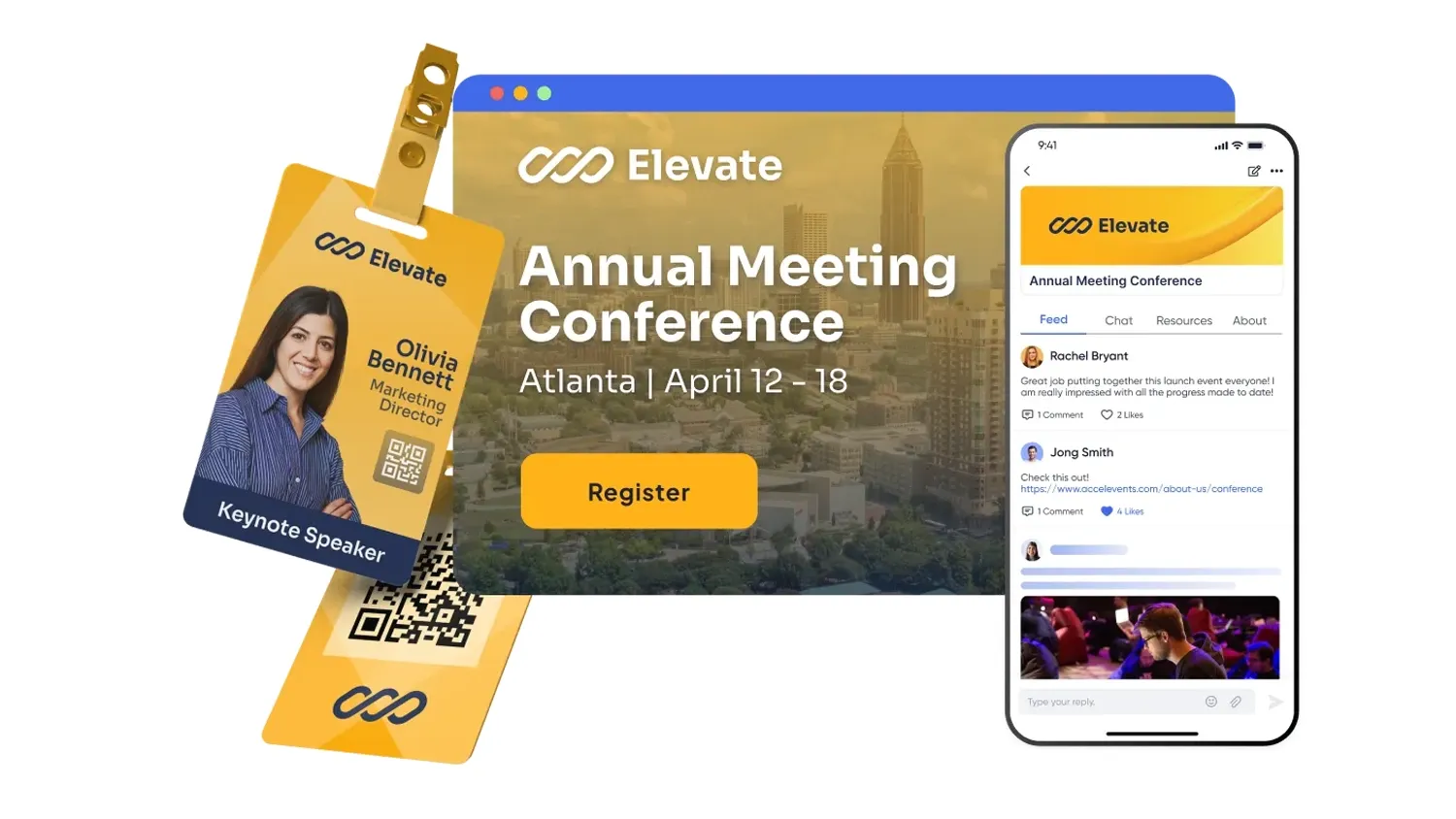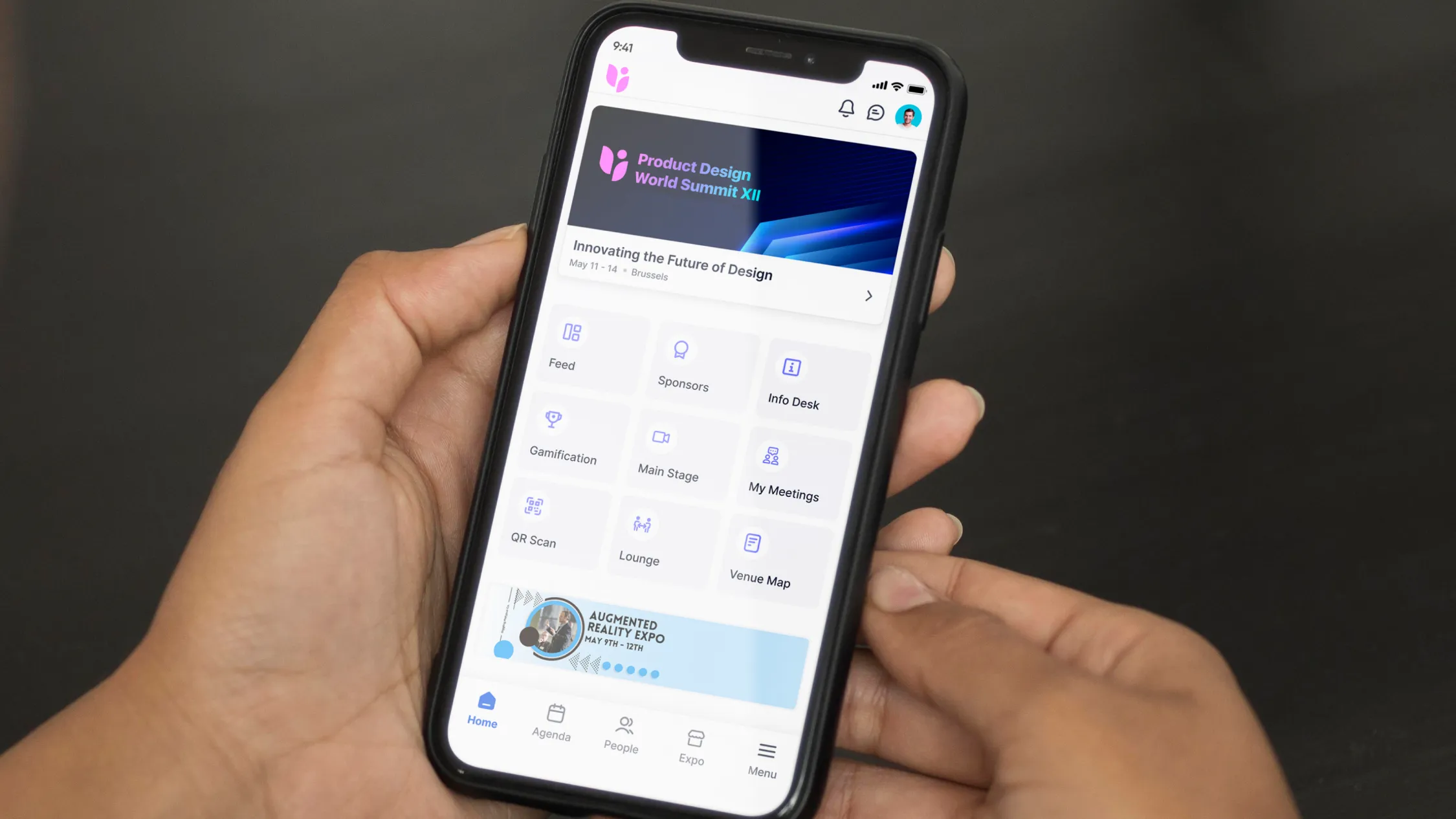8 Steps for Creating an Event Marketing Plan
Events are quickly becoming another critical addition to the event marketer’s stack. Events of all shapes and sizes can be used for lead generation, revenue growth, and brand awareness. To run a successful event, you need to market it and draw in potential attendees. How you develop your event marketing plan will depend on your event goal and the type of event you plan to run. So, press onward to learn more about creating an event marketing plan.
What is an Event Marketing Plan?
An event marketing plan consists of your team's strategy to promote your event and gain attendees. The event marketing plan will usually take into consideration:
- The budget
- The amount of time you have to promote
- The types of exhibitors and partners you will need
- The event software that you use
These items will work together to build a robust project plan and a winning strategy for your upcoming event.
Considerations for Your Event Marketing Plan
As we mentioned, your event marketing plan should depend on the event format. This might involve a live, in-person event, a hybrid event, or a virtual event. So, no matter which event style you go with, you can still market it well, but your marketing tactics might be slightly different depending on your chosen event format. Also, beyond delivery format, the actual type of event will impact your event promotion. Popular event types include:
- Social events
- Trade shows
- Educational webinars
- Conferences
- Product launches
- Career fairs
- Fundraisers
Therefore, when creating your marketing plan, you’ll want to build out the best possible plan given the constraints you’ll have. For example, you’ll want a set marketing budget, you’ll identify the channels through which you can market, how much staff or personnel you have to help you, and how early you will be promoting the event.
8 Steps for Creating Your Event Marketing Plan
Follow this simple 8 step plan for a successful event marketing campaign:
#1: Set the Details
The details of your event are essential because they determine other things like how much money you need to budget for. Critical details include:
- Your event date(s)
- The event format
- The event style
Start by choosing the date of your event. Try to set a date as far in advance as possible. Aim to give yourself at least 4 to 6 months to prepare and market your event correctly. Also, you should have an event type in mind. Perhaps you already know that you have a product launch that will cornerstone your event. Or, you are interested in starting up a trade show for your niche industry. No matter what it is, make sure that the event format is appropriate for your goals. The event style will determine your event date and be defined by your event format. If you’re hosting an in-person, live event, or hybrid event, then you will be limited based on the availability of the venue you can secure. In deciding your event style, here are some things to consider:
Hybrid Events
Hybrid events combine online elements and in-person elements. If you can, try hosting an in-person event and then filming and streaming each session online so the virtual audience can get as much as possible from the experience. You can do a lot with hybrid events, but it is more work than traditional or online events. Think of hybrid events as running two different events, with two different audiences, focused around the same theme and the same or similar content. However, the benefits of hybrid events usually outweigh the drawbacks caused by the extra work!
Virtual Events
Virtual events are viral now that more individuals are working from home, and event technology has improved enough to truly handle high-quality live streaming. Virtual events are held entirely online using an all-in-one event management platform. These events can have pre-recorded or live sessions and come with several benefits, like reaching a wider audience than in-person events. The attendees log in to the platform and can then interact with attendees all over the globe.
In-Person Events
In-person events took a back seat during 2020 and 2021 due to COVID pandemic restrictions, but they rose again in 2022. We recommend incorporating elements of the virtual format, like an event app and online registration, to reap some of the rewards of hybrid event lead generation and positive event experience.
#2: Determine Your Budget
Once you’ve decided on the details, you can calculate your event budget. If you’ve done a similar type of event in the past, you’ll have some good ideas of what worked last time, what didn’t work, and what you wish you’d done in addition or instead of. However, we’re finding that virtual events are brand new to a large number of our clients, so the budgeting process is dramatically different than it’s probably been for them in past years. Since you’re not dealing with the types of expenses you’ve dealt with in the past, such as keynote speaker lunches and swag bags, for example, you’ll need to approach your budget with new eyes. There are some expenses that you’ll be accustomed to. Some examples of those include:
- Speaker fees
- Advertising and marketing the event
- Event registration fees
That said, if you’re planning a virtual event and you’ve never done one before, you might be looking at costs like:
- A/V equipment
- Closed captioning services
- An event management platform
The good news is, depending on the event management platform you choose, their sales and support teams can advise you through this process based on the many virtual events they’ve been exposed to in the past.
#3: Select Your Event Management Software
The event management software you choose will make all the difference in your event. If the event you’re hosting is a hybrid event or an entirely virtual event, then the event management software will make all the difference. For example, with hybrid events, you need a management platform that will also stream your live streams, in real-time, to the online audience. You need a virtual event management platform with RTMP services and integrated live streaming for virtual events. In both instances, you need an event management platform that heavily engages your attendees through live chat, breakout rooms, and gamification capabilities. Another consideration is using a platform that links to the rest of your marketing tech stack, like email marketing or customer relationship management (CRM) software, for future marketing campaigns and lead generation.
#4: Map Your Event
Once you’ve determined your date and format, it’s time to map out your event. Mapping your event involves:
- Defining your audience
- Creating your schedule
- Determining your theme
- Choosing speaker sessions, speakers, and keynotes
- Content creation
- Branding your event
Mapping your event is the good stuff! Here is where you get to decide what your event presenters and attendees will talk about. This step guides your event theme, the schedule, and the day of events. You want to make sure that everything you’re deciding is curated for your audience, industry, and highly relevant. If you are not hosting a product launch, make sure that the topics tie back into industry trends or topical subjects. Make sure to determine the price of each ticket, including those early bird tickets and VIP ticketing. Also, try to map out your audience segments now, as this will help you when you start promotion (step 8).
#5: Secure Your Sponsors
You can approach your sponsors NOW or after you’ve developed your marketing materials (step 6, below). Either way, you want to start petitioning for sponsorship and funding support as soon as possible. Come up with a few tiers for sponsorships, like the:
- VIP sponsorship package
- Preferred Partner
- Starter
The fact that you need sponsors should have been established in your budget! If it wasn’t, you could probably expect a more significant profit margin!
#6: Create Your Marketing Material
Now that you’ve mapped your event, you can develop the marketing material. The marketing material should be a lot of fun. Work with your graphic designer, content team, and marketing professionals to develop an event brand with a branded message, colors, fonts, and formatting. Your marketing material should be promoted on:
- Social media platforms like Facebook, Twitter, Instagram, and TikTok
- Your event website
- Your brand’s website
- Your brand’s newsletters
- Sent out on the event newsletter
Your marketing material should somehow be tied back to your brand, depending on how your event is structured. But it may also need to give space for promoting sponsors, partners, and speakers!
#7: Secure Your Speakers
While you may be developing your marketing material, you aren’t promoting it just yet! Before you do that, you need to secure your speakers!Securing your speakers can be challenging. This is because of scheduling conflicts, budgeting conflicts, and sometimes you just can’t get a hold of the speakers you want. Take your time, and realize that you may have to send multiple emails to your speakers to see if they are interested. Make sure you have a list of your primary speakers and back-ups, just in case. Even if you’ve locked in a speaker, they may bail at the last minute. While no one wants this to happen, it does happen! Have back-ups ready and confirmed. They can be confirmed as regular speakers, but be prepared to step in as a keynote if you need it.
#8: Begin Omnichannel Promotion
Now it seems that you’re about ready to promote. While you are likely getting the birds chirping when you begin asking for speakers and sponsors, you will make a splash with your big omnichannel announcement!Announce on all your channels, with everything leading back to your event website. As your registrations roll in, begin to send out welcome emails. You can also run targeted display ads for those in your audience. Start targeting ads and emails based on audience segmentation. You’ll want to make a few announcements throughout your campaign, but you can also make sure that they make sense for your event and style. Don’t be afraid to throw in give-aways, early gamification features, and prizes!
Run Your Best Event With Accelevents By Your Side
Having a clear plan for promoting your event will make your marketing efforts run smoothly and effortlessly. With the right marketing plan, you will effectively market to your target audience, get many event attendees, and hit your marketing goal! Doing all this requires a lot of planning, but it also requires sophisticated event software. With the right software, you’ll find many features to help your digital marketing plan. Guarantee event success with Accelevents and features like customization, a website landing page, an event app, online registration, online ticketing, and many integrations!








